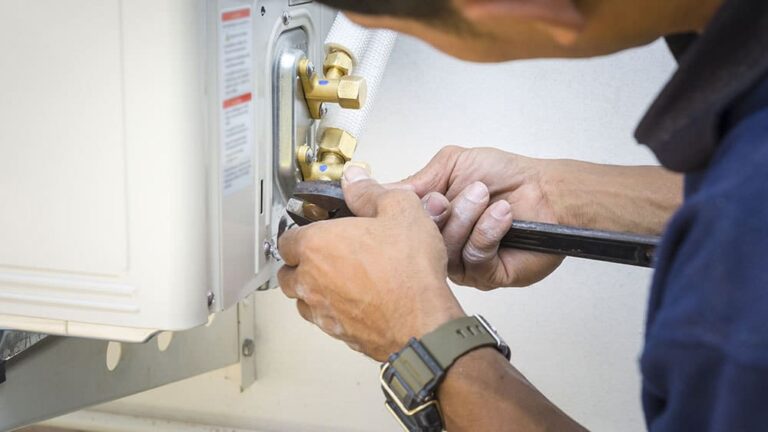Your HVAC system is a central component of your home’s network. It provides comfort to you and your family during the cold, icy days and nights of winter. In the heat and humidity of the summer months, your HVAC unit cools the air and helps control the humidity.
Therefore, it is essential that you know how to maintain and repair your home’s HVAC system.
Schedule Preventative Maintenance
Working in concert with a professional HVAC technician is one key element of a plan to maintain your HVAC system. Scheduling a preventative maintenance check for your system twice a year is recommended by most HVAC professionals.
In the spring, your HVAC technician should service your air conditioner; fall is the best time to have your heating system tuned up. Your HVAC technician will inspect the unit; they will check controls on the system, lubricate moving components, calibrate the thermostat, and more. This will ensure that your system operates efficiently throughout the summer and winter seasons.
Ensure the Flow of Air
To make sure that the air flows unobstructed in and out of your HVAC units, you need to remove anything that can restrict air movement. Debris needs to be kept away from your outdoor unit. Trim any plants that are near the unit keeping them about two feet away. Leaves, sticks, twigs, and other debris should be swept or raked away. Indoors, clutter needs to be removed from the vents.
Change Filters Regularly
Consult with an HVAC specialist on the frequency in which you should replace the filters in your HVAC system. When filters are doing their job, they remove particles from the air. This reduces the potential of pollutants entering your home. Not only do filters help with the quality of the air that you breathe, but they also help with how efficiently your HVAC unit operates.
Install a Carbon Monoxide Sensor
For the safety of all who live with you, install a carbon monoxide detector. In homes with heating units that use fuel or gas to generate heat, a carbon monoxide sensor will detect gas leaks or ventilation issues. Check the battery on your sensor every time you change the battery in your smoke detector.
Thermostat and Temperature
Another battery to keep an eye on is the one in your thermostat. If your thermostat is not hard-wired, then the battery should be changed annually to twice a year to prevent any operational issues.
A programmable thermostat is often a worthwhile investment. You can either preset desired temperatures in your home, or you can adjust the settings from your Smartphone. Changing the temperature in your home to a bit warmer in the summer or cooler in the winter when no one is home can reduce the strain on your HVAC system.
Watch your Energy Consumption
Another way to maintain your HVAC system is to monitor how much energy your home is consuming. Significant increases in use can signify a problem with how your HVAC system is running. Gradual but continual increases in energy consumption can also be a sign that your system needs maintenance or repair.

